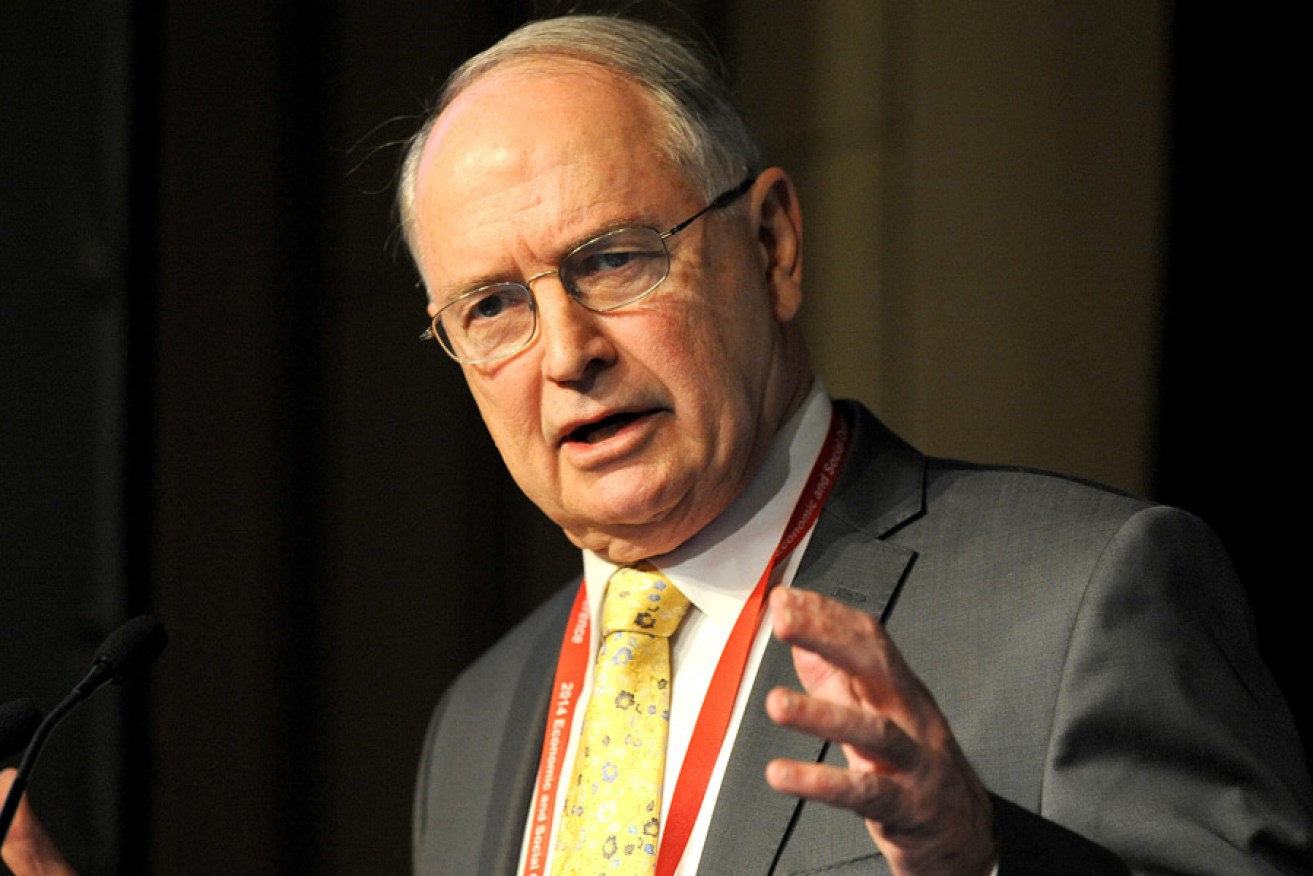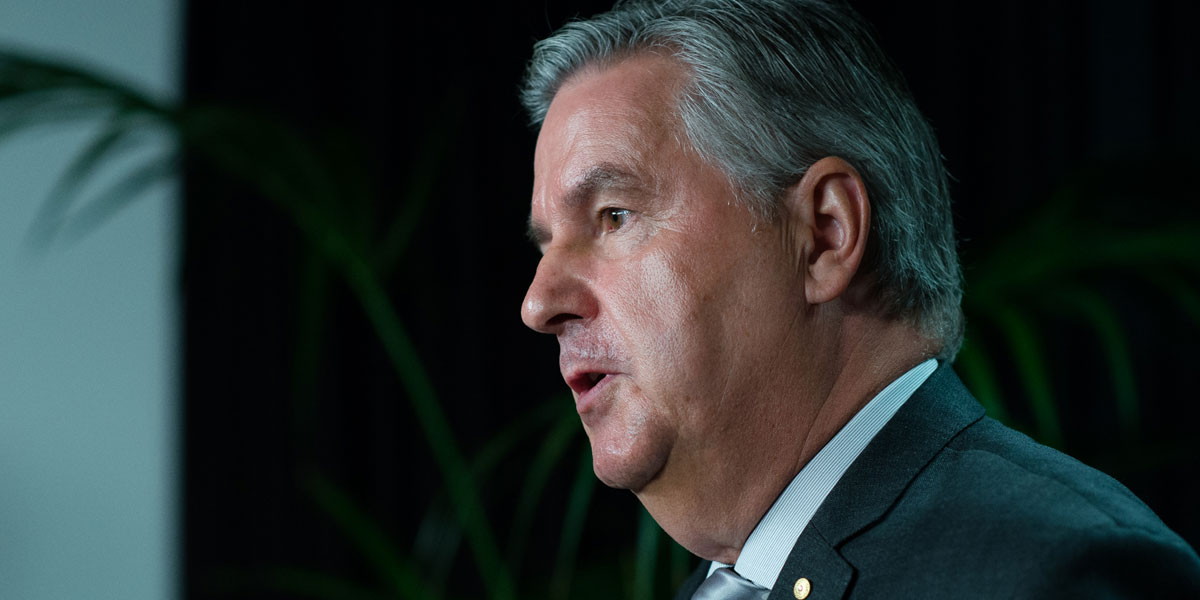The author of Australia’s landmark climate change review, Ross Garnaut, says the costs of renewable energy generation have been diminishing faster than those of nuclear power, arguing South Australia could be better placed exploiting advantages in wind and solar than nuclear energy.
But he suggested there may be a local role for domestic uranium enrichment.
The distinguished economics professor and former Ambassador to China was the first witness at a public hearing conducted in Adelaide today by the royal commission examining South Australia’s nuclear options.
Garnaut was commissioned by the Rudd Government to undertake a controversial climate change report that pushed the case for an emissions trading scheme.
He told the commission today the case for nuclear generation was contingent on rapidly evolving technological development, but emphasised that “just at the moment renewables costs have been going down faster than nuclear”.
Garnaut’s report, first published in 2008 and updated in 2011, was lukewarm on the nuclear option, arguing “Australia would be best served by continuing to export its uranium and focusing on low-emissions coal, gas and renewable options for domestic energy supply”.
Today, he reflected on significant technological change since that report was published, concluding that “compared with the results of the 2008 review you’d see a smaller role for nuclear power generation in Australia”.
However, he said, “you may actually see a larger role for Australia in other parts of the nuclear cycle, particularly uranium enrichment”.
Garnaut said that on a purely economic analysis current projections suggested “a much smaller role for gas and a much larger role for renewables”.
“The effect of all the technological changes has been most importantly to reduce the cost of delivering low emission technologies more rapidly than was embodied in the assumptions of my initial modelling seven or eight years ago,” he said.
“The cost of moving the world in general, and Australia in particular, to low emissions electricity now looks much lower than it looked eight years ago (and) it will go lower still … I’d anticipate a much larger role for renewables at an earlier stage (but) it can’t continue forever without further technological development.
“Whether you’d get nuclear power generation in that scenario would depend on the rates of change in technology (and) the rates of cost reduction compared with renewables, and just at the moment renewables costs have been going down faster than nuclear.”
Garnaut said his initial belief was that “if the economics were the only factor driving things, you’d see the emergence of some nuclear energy in Australia”.
However, “since then we’ve learned what’s happened to the relative rates of technological change”.
“The rate of technological change in all the low emissions electricity-generating technology has been much faster than my modelling anticipated,” he said.
“That modelling of seven or eight years ago suggested a fairly large role for gas as a transitional fuel … we won’t get that now because of the internationalisation of the gas industry.”
Garnaut is bullish about Australia’s potential to thrive as a low-carbon economy, arguing “if we play our cards right and commit ourselves unambiguously … Australia can win back an advantage it once held as a low energy cost country”.
“Australia’s advantages are even greater in a low carbon world than a fossil fuel world,” he said.
“In SA the combination of solar energy opportunities and wind energy opportunities are exceptional.”
While Garnaut notes the “technology here is still sorting itself out”, he argues for a decisive political approach.
“It would be much more costly if we chopped and changed policies, or leave it too late,” he said.
“We’re not going to reduce demands on us by delay… I expect a ratcheting-up of the Australian effort; we won’t catch up with the international effort overnight, but I don’t think there’s much doubt about the direction we’ll be moving in the next decade or two.”
The commission will be conducting a series of hearings in coming weeks.
Commissioner Kevin Scarce emphasised today the forum was “not an adversarial contest”, nor a “trial between comperting cases”.
“Nor is any witness on trial … there’s no score to be kept,” he said.






